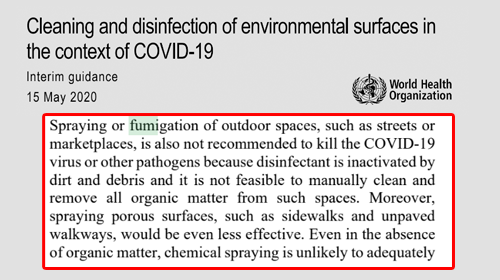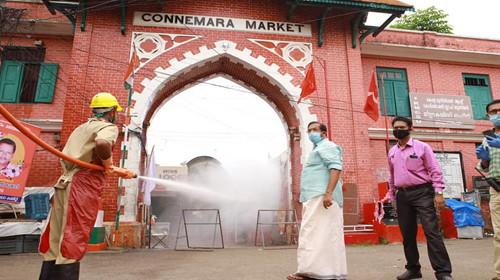TrivandrumLife>>> Ever since discussions over community spread began in Thiruvananthapuram, authorities have been busy with various activities to prevent it. From fumigation of public places and shops to awareness sessions, the district administration, city police and corporation leave no stone unturned to prevent the possible community spread in the city.
On Thursday alone, the district witnessed four cases of local transmission. Of these, the source of infection is unknown in three cases, which point to the possibility of community spread.
On Friday, a team of officials of Fires and Rescue Service and city Corporation began spraying disinfectants public places, including Sabhalyam complex at Palayam where an infected person worked. However, the guidelines issued by the World Health Organization (WHO) say that fumigation of both outdoors and indoors is ineffective in tackling Covid 19.

As per the interim guidelines issued by WHO in May, spraying disinfectants both indoors and outdoors could be harmful for human health. It said that spraying or fumigation of outdoor spaces, such as streets or marketplaces, is not recommended to kill the COVID-19 virus or other pathogens because disinfectant is inactivated by dirt and debris and it is not feasible to manually clean and remove all organic matter from such spaces.
“Streets and sidewalks are not considered to be reservoirs of infection for COVID-19. In addition, spraying disinfectants, even outdoors, can be harmful for human health,” it said.
“In indoor spaces, routine application of disinfectants to environmental surfaces by spraying or fogging is not recommended for COVID19. One study has shown that spraying as a primary disinfection strategy is ineffective in removing contaminants outside of direct spray zones,” it added.
Authorities must follow ICMR and WHO guidelines in its prevention activities. As per the latest studies available, proper use of masks, hand washing and social distancing continue to be effective in preventing the spread of the disease.





